It is said: “when a student is ready, the teacher appears.” For over 20 years, I have been asking the question of how can we live in ways that sustain and restore the earth, and ourselves? Over that time, I have been blessed to learn from some amazing teachers, each adding new dimensions and experiences to my understanding. In honor of Earth Day, I am sharing a tribute to some of my teachers, in order of appearance. I hope this will inspire you to explore their ideas and teachings as well, and perhaps reflect on your own lineage of teachers.
Paul Hawken, Author of The Ecology of Commerce
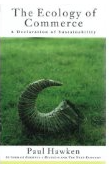 Paul Hawken’s book The Ecology of Commerce was the big reframe for me and many others about how we could redesign business and commerce to benefit the earth.
Paul Hawken’s book The Ecology of Commerce was the big reframe for me and many others about how we could redesign business and commerce to benefit the earth.
Karl Henrik Robert and The Natural Step
Dr. Karl-Henrik Robert, an oncologist in Sweden, was troubled by the increase in rare childhood cancers amongst his patients. He developed a consensus process with scientists to distill some basic ‘operating rules for the planet’ to help the public make decisions that reduce environmental harm. Out of this the Natural Step framework emerged, one of the simplest and clearest ways to define what is sustainable and help people take action.
Donella Meadows
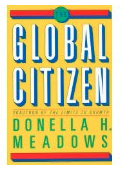 Donella Meadows was my first teacher who helped me understand what systems thinking means. She wrote a weekly column, Global Citizen, showing how this way of thinking applied, both at a policy level and in her experiences growing food and living close to the land. She also helped me appreciate that much of our material consumption is trying to meet non-material needs. She wrote: “Think of the effort, the money, the resources put into designing, making, advertising, buying, shipping, storing, and disposing of these unsatisfying substitutes for very real nonmaterial needs. Imagine putting even a fraction of that effort directly into home, comfort, health, cleanliness, nature, respect, friends and love.”
Donella Meadows was my first teacher who helped me understand what systems thinking means. She wrote a weekly column, Global Citizen, showing how this way of thinking applied, both at a policy level and in her experiences growing food and living close to the land. She also helped me appreciate that much of our material consumption is trying to meet non-material needs. She wrote: “Think of the effort, the money, the resources put into designing, making, advertising, buying, shipping, storing, and disposing of these unsatisfying substitutes for very real nonmaterial needs. Imagine putting even a fraction of that effort directly into home, comfort, health, cleanliness, nature, respect, friends and love.”
Dick and Jeanne Roy
As I was learning more about sustainability, I had the opportunity meet Dick and Jeanne Roy, a married 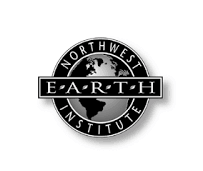 couple from Portland, Oregon, who had lived as simply as possible, saving up money, so they could retire early and work as full time volunteers for the earth. They co-founded the Northwest Earth Institute, which offers a remarkably simple yet powerful program: a small group came together to go through an 8-week study guide full of rich articles and ideas, e.g., on voluntary simplicity and choices for sustainable living. When people get into a deeper conversation about their values and how they are acting, change naturally starts to unfold. The learning and conversations in these courses changed the course of my life, as did seeing the model of how Dick and Jeanne lived their lives with integrity, aligned to their values.
couple from Portland, Oregon, who had lived as simply as possible, saving up money, so they could retire early and work as full time volunteers for the earth. They co-founded the Northwest Earth Institute, which offers a remarkably simple yet powerful program: a small group came together to go through an 8-week study guide full of rich articles and ideas, e.g., on voluntary simplicity and choices for sustainable living. When people get into a deeper conversation about their values and how they are acting, change naturally starts to unfold. The learning and conversations in these courses changed the course of my life, as did seeing the model of how Dick and Jeanne lived their lives with integrity, aligned to their values.
Fran Peavey
As I got deeper into working on the transition to sustainability, I realized that understanding how people change is front and center to accomplishing anything. Fran Peavey is a social activist who developed the technique of Strategic Questioning and this quote has been central to my work: “It’s a far superior strategy to get all minds working on what needs to change, than trying to convince people to do what we think is best.”
Joanna Macy
Joanna Macy’s 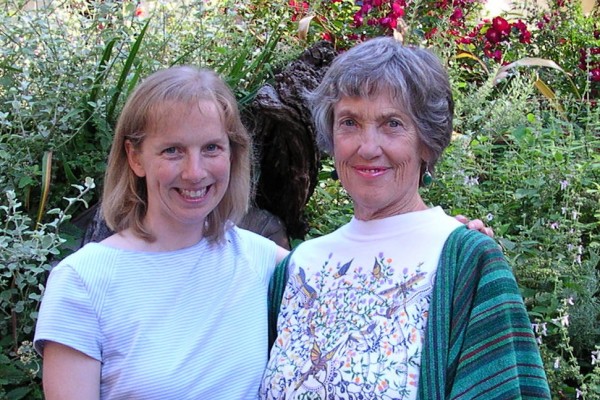 books and experiential workshops provide insight and spiritual/emotional sustenance and a community of support to those working on what she calls the Great Turning: a time of shifting from an era of industrial growth without limits to an ecological era where our civilization thrives while restoring the earth. She opened my eyes to new ways of seeing, e.g., that these systems are products of our own minds, and helped me understand the ways that the patterns of living systems can be a basis for working for change.
books and experiential workshops provide insight and spiritual/emotional sustenance and a community of support to those working on what she calls the Great Turning: a time of shifting from an era of industrial growth without limits to an ecological era where our civilization thrives while restoring the earth. She opened my eyes to new ways of seeing, e.g., that these systems are products of our own minds, and helped me understand the ways that the patterns of living systems can be a basis for working for change.
Lauren Chase-Rowell
For many who work on environmental change, it can be conceptual and lost in ideas of policy change, procedures, training workshops, etc. Then comes the moment when you taste a freshly picked vegetable 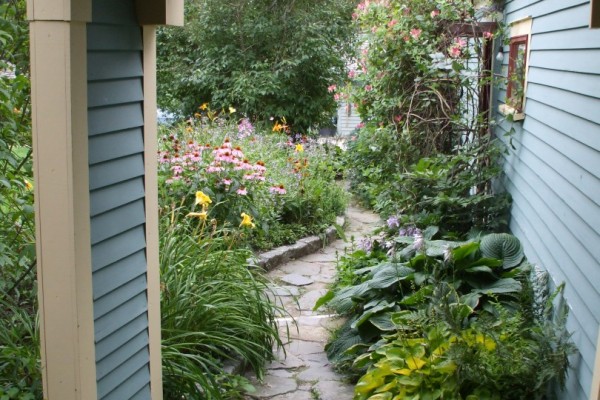 grown in healthy soil or enter a beautifully designed day-lit green building, and realize we are about not only stopping harm, but creating a much preferable alternative. I was blessed to meet Lauren Chase-Rowell, who in her teaching and lived example has taught me so much about ecology, design, and permaculture. She was my neighbor and good friend when I moved to New Hampshire. Over 25 years on her 19-acre homestead farm, she and her husband raised three boys, growing much of their own food. She designed the landscapes with ecological principles, long before permaculture became popular. As she writes: “The blend of mindful intention, good old Yankee ingenuity, and common sense that constitute permaculture principles and practices, has made permaculture the main stay of my lifestyle for many years.” Check out her article on The Consciously Designed Life.
grown in healthy soil or enter a beautifully designed day-lit green building, and realize we are about not only stopping harm, but creating a much preferable alternative. I was blessed to meet Lauren Chase-Rowell, who in her teaching and lived example has taught me so much about ecology, design, and permaculture. She was my neighbor and good friend when I moved to New Hampshire. Over 25 years on her 19-acre homestead farm, she and her husband raised three boys, growing much of their own food. She designed the landscapes with ecological principles, long before permaculture became popular. As she writes: “The blend of mindful intention, good old Yankee ingenuity, and common sense that constitute permaculture principles and practices, has made permaculture the main stay of my lifestyle for many years.” Check out her article on The Consciously Designed Life.
Belvie Rooks and Dedan Gills
On a retreat at the Center for Whole Communities, 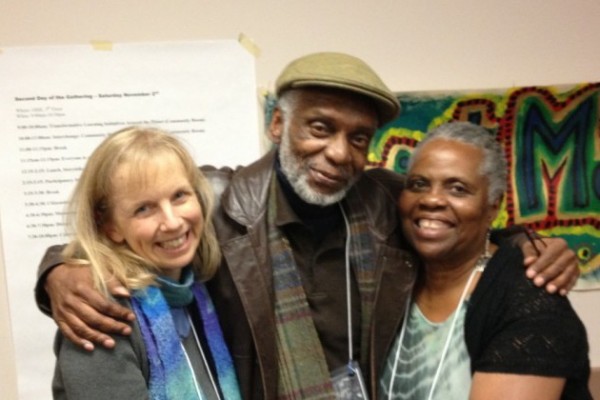 I spent a week in deep dialogue with a diverse group from around the country, exploring how to work across difference and integrate movements for racial equity, social justice, LGBT, sustainability, and more. A friendship formed there with Belvie Rooks, who with her late husband, Dedan Gills, had a vision of planting trees in honor of slaves who were forgotten, along the route of the Underground Railroad. Their vision of “Healing the wounds of the past—in the present—while creating a sustainable future” has inspired me and many others to explore “what healing looks like,” especially how healing the earth can be done in ways that lift up and restore those living with the burdens of racial injustice.
I spent a week in deep dialogue with a diverse group from around the country, exploring how to work across difference and integrate movements for racial equity, social justice, LGBT, sustainability, and more. A friendship formed there with Belvie Rooks, who with her late husband, Dedan Gills, had a vision of planting trees in honor of slaves who were forgotten, along the route of the Underground Railroad. Their vision of “Healing the wounds of the past—in the present—while creating a sustainable future” has inspired me and many others to explore “what healing looks like,” especially how healing the earth can be done in ways that lift up and restore those living with the burdens of racial injustice.
And the emerging edge of my learning and teachers I am drawn to learn more from: Carol Sanford, the Capital Institute’s work on regenerative economics, and Robin Wall Kimmerer. What is your lineage of teachers?

Well said, Beth! It’s a cohort of remarkable teachers and mentors.
So interesting to read about those who have shaped you so effectively. You, in turn, are passing these powerful learnings on to so many others.
How hopeful the future is because the clan is gathering and sitting in Council across the divides!